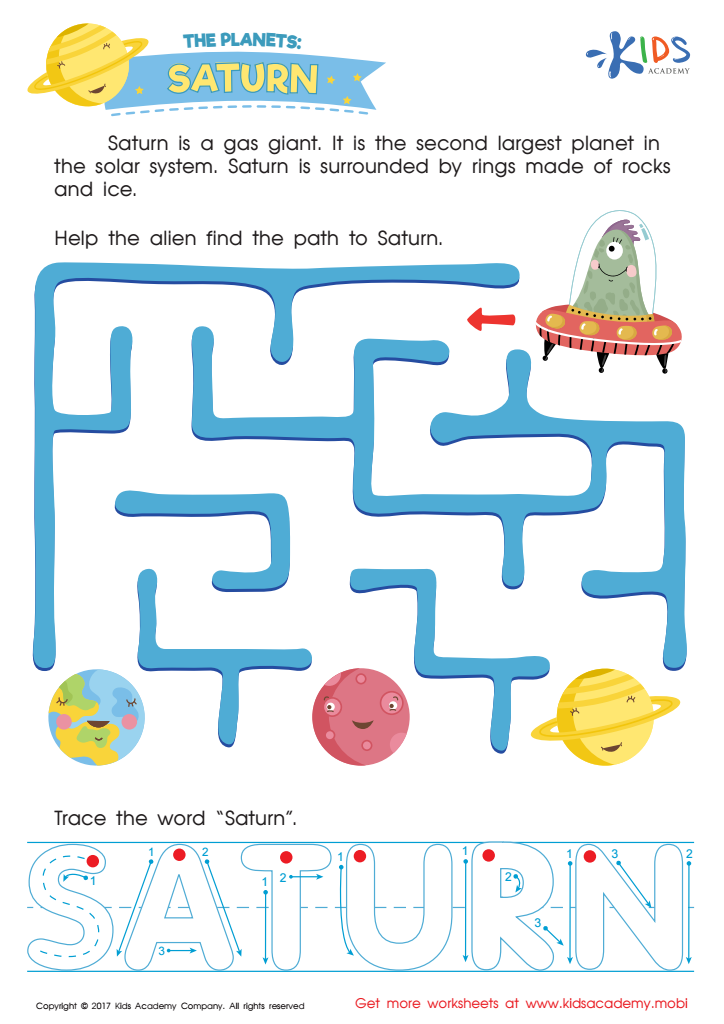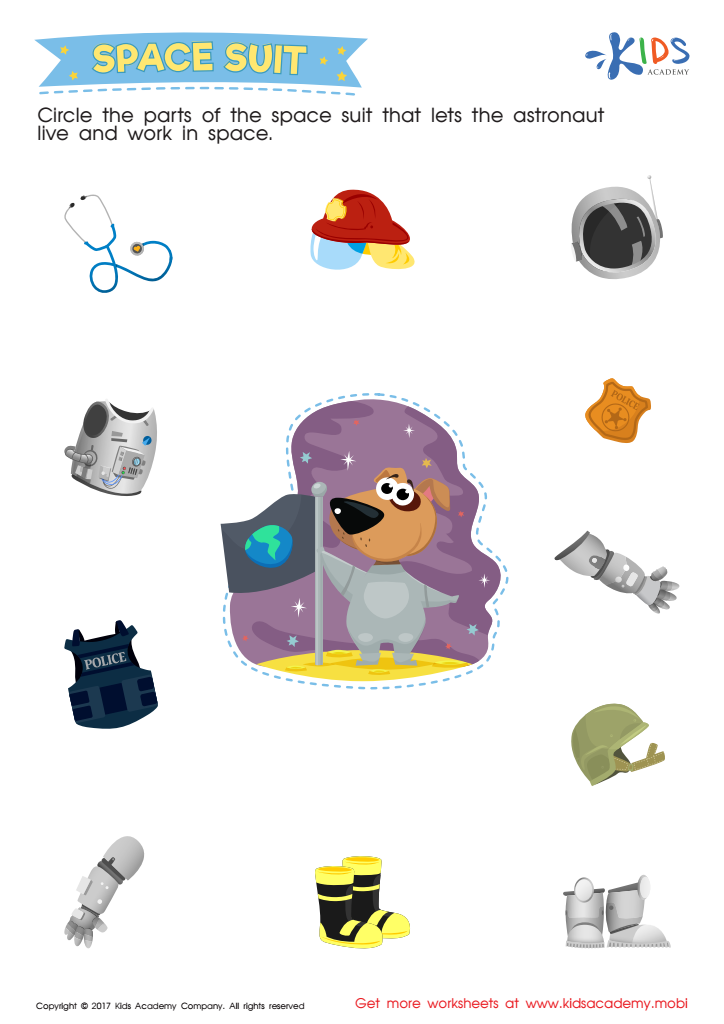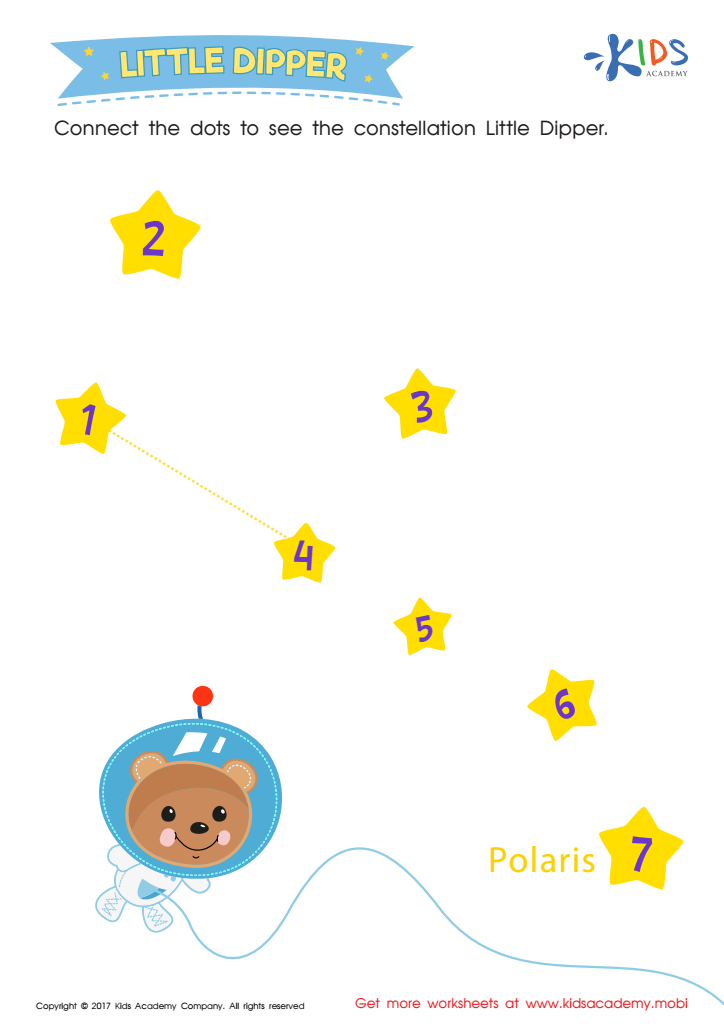Space Worksheets for Ages 7-8
4 filtered results
-
From - To
Boost your child's curiosity about the cosmos with our engaging Space Worksheets, designed specifically for ages 7-8. Our captivating worksheets combine fun challenges and educational activities, helping young explorers learn about planets, moons, stars, and astronauts. Kids will enhance their knowledge of the universe while developing critical thinking and problem-solving skills. The carefully crafted exercises include puzzles, matching activities, and creative tasks to keep learners excited and motivated. Perfect for both classroom use and home study, our space-themed worksheets ignite imagination and foster a lifelong love for science. Dive into the wonders of space today!




The Planets: Saturn Printable
Introducing space to children ages 7-8 ignites curiosity and fosters a sense of wonder about the universe. At this age, kids are naturally inquisitive and eager to understand the world around them. Learning about space cultivates critical thinking and problem-solving skills as they ponder concepts like planets, stars, and galaxies. It can serve as a gateway to broader scientific knowledge, sparking interests in subjects such as physics, chemistry, and environmental science.
Educators and parents play a crucial role in guiding this curiosity. By incorporating space topics into lessons or discussions, they help develop children's understanding of scientific principles in an engaging way. Utilizing interactive tools, such as planetarium visits, space-themed games, or model-building kits, makes learning about space accessible and exciting.
Moreover, space education supports the development of perseverance and creativity. Studying the challenges astronauts face or imagining future space missions encourages kids to think innovatively and appreciate the value of hard work and collaboration.
Understanding space also promotes a sense of global citizenship. Discussing the Earth's place in the universe can instill a sense of responsibility to care for our planet. Ultimately, fostering an interest in space equips children with a lifelong love for learning and an appreciation for the world beyond their immediate surroundings.
 Assign to My Students
Assign to My Students








.jpg)








